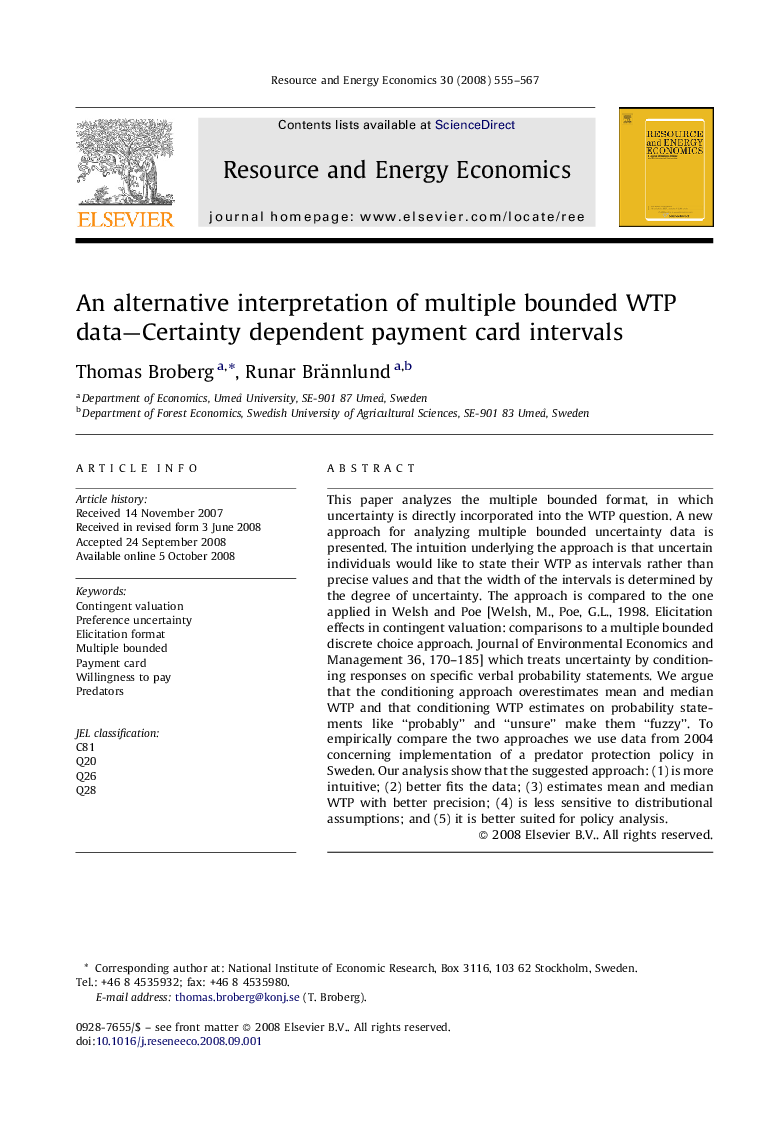| Article ID | Journal | Published Year | Pages | File Type |
|---|---|---|---|---|
| 985152 | Resource and Energy Economics | 2008 | 13 Pages |
This paper analyzes the multiple bounded format, in which uncertainty is directly incorporated into the WTP question. A new approach for analyzing multiple bounded uncertainty data is presented. The intuition underlying the approach is that uncertain individuals would like to state their WTP as intervals rather than precise values and that the width of the intervals is determined by the degree of uncertainty. The approach is compared to the one applied in Welsh and Poe [Welsh, M., Poe, G.L., 1998. Elicitation effects in contingent valuation: comparisons to a multiple bounded discrete choice approach. Journal of Environmental Economics and Management 36, 170–185] which treats uncertainty by conditioning responses on specific verbal probability statements. We argue that the conditioning approach overestimates mean and median WTP and that conditioning WTP estimates on probability statements like “probably” and “unsure” make them “fuzzy”. To empirically compare the two approaches we use data from 2004 concerning implementation of a predator protection policy in Sweden. Our analysis show that the suggested approach: (1) is more intuitive; (2) better fits the data; (3) estimates mean and median WTP with better precision; (4) is less sensitive to distributional assumptions; and (5) it is better suited for policy analysis.
